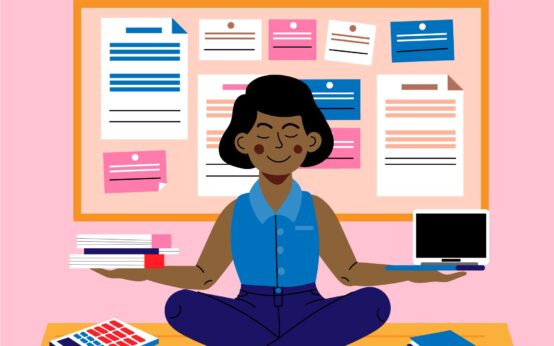Have you ever wondered how you can manage the stress that seems to sneak into your life, creating tension and affecting your peace of mind? It’s a common struggle that many people face. In our fast-paced world, striking a balance between striving for success and maintaining inner peace can seem daunting. However, mindfulness offers an accessible and effective way to help reduce stress and cultivate a calm and focused mind.
Understanding Mindfulness
Mindfulness might sound like a buzzword, but its roots run deep in ancient practices. At its core, mindfulness is about being present in the moment, fully engaged with what you’re doing, without being reactive or overwhelmed by what’s happening around you. It involves observing your thoughts and feelings without judgment, which leads to greater clarity and calmness.
The Origins of Mindfulness
Mindfulness draws from ancient Buddhist traditions, although it’s also found in other religious and philosophical practices. Over time, it has been incorporated into Western medicine and psychology as an effective technique for improving mental well-being, most famously through the Mindfulness-Based Stress Reduction (MBSR) program developed by Jon Kabat-Zinn. For a detailed explanation of this program, see Mindfulness-Based Stress Reduction (MBSR) Explained.
How Mindfulness Reduces Stress
The primary way mindfulness reduces stress is by shifting your focus from the overcrowded thoughts of the future or past to the present moment. When you’re fully immersed in the now, you naturally diminish anxiety about what’s to come or regret over what’s gone. This shift in perspective helps lower cortisol levels—the stress hormone—which can improve your overall health.
Practical Ways to Implement Mindfulness
Incorporating mindfulness into your daily life doesn’t require a dramatic lifestyle change. Simple practices can serve as stepping stones to a more mindful existence.
Mindful Breathing
One of the simplest ways to start practicing mindfulness is through mindful breathing. It’s a technique where you focus solely on your breath, noticing how it enters and leaves your body. When thoughts intrude, as they surely will, gently redirect your focus to your breathing. A regular practice can be done for just five to ten minutes daily and offers significant stress reduction benefits.
Mindful Meditation
Meditation is another powerful tool in the mindfulness arsenal. You can start with short sessions and gradually increase the duration as you become more practiced. Apps and online resources such as Free Guided Audio Mindfulness Practices can offer guided meditation sessions for beginners, making it easier to form a habit. Regular meditation can improve emotional health and increase self-awareness, both key to stress reduction.
Body Scan Meditation
This meditation helps you gain awareness of how your mind and body are interlinked. It involves systematically focusing on different parts of your body, paying attention to any tension, pain, or discomfort. This practice not only heightens bodily awareness but also promotes the release of built-up stress.
Mindful Walking
Walking can be transformed into a mindful practice by paying attention to the sensation of your feet touching the ground, the motion of your body, and your surroundings. It’s a great way to clear your mind while engaging in physical activity.

Integrating Mindfulness into Daily Life
Mindfulness doesn’t have to be confined to specific practices. You can integrate it into daily activities for continuous stress management.
Mindful Eating
Pay attention to the flavors, textures, and aromas of the food you consume. Eating slowly and savoring each bite not only improves digestion but also enhances appreciation and satisfaction, reducing stress-related eating.
Mindful Listening
Conversations can become more meaningful when you listen mindfully. Focus entirely on what the other person is saying without interrupting or letting your mind wander. This promotes deeper connections and understanding in relationships.
Mindful Commuting
Instead of viewing commutes as a necessary evil, use this time to practice mindfulness. Whether you focus on your breathing, observe the sights around you, or listen to a calming playlist, mindful commuting can turn this seemingly mundane period into a peaceful part of your day.
The Science Behind Mindfulness and Stress Reduction
Research supports the efficacy of mindfulness in reducing stress. For a summary of the health benefits of this practice, see Mindfulness for Your Health (NIH News in Health). Numerous studies highlight how mindfulness affects the brain and body.
Mindfulness and the Brain
Engaging regularly in mindfulness practices has been shown to increase grey matter in the brain, particularly in areas associated with memory, learning, and emotional regulation. This means that mindfulness can help you manage stress by enhancing your brain’s capacity to adapt and remain resilient in stressful situations.
Mindfulness and Emotional Regulation
Maintaining mindfulness enables you to observe your emotions without immediately reacting, allowing you to choose responses that are more aligned with your values rather than impulsive reactions. This emotional regulation is crucial in stress management, helping you maintain stability even in challenging situations. For more on the neurobiological and psychological mechanisms involved, see Mindfulness and Emotional Regulation: Insights from Neurobiological, Psychological, and Clinical Studies.
Mindfulness and Physical Health
The connection between mind and body is deeply impacted by mindfulness. Practicing mindfulness can lead to reductions in blood pressure, improvements in heart rate, and overall better physical health. Stress often manifests in physical symptoms, so by reducing stress, you’re also supporting your body’s overall health.

Mindfulness Practices for the Workplace
The workplace can be a significant source of stress, but mindfulness can assist in transforming how you perceive and respond to work-related stressors.
Mindful Breaks
Schedule short breaks throughout your workday to pause and practice mindfulness. Whether it’s a few minutes of deep breathing or a quick body scan, these breaks can rejuvenate your focus and reduce stress accumulation.
Mindful Meetings
Before starting a meeting, take a minute to sit in silence and focus on breathing. It’s a simple practice that calms the mind and centers the group, creating a more collaborative and less stressful environment.
Creating a Mindful Workspace
Arrange your workspace to reduce distractions and foster a peaceful environment. Consider soft lighting, plants, or even a small fountain for ambient sound. A mindful workspace keeps your stress levels lower and encourages focus and productivity.
Overcoming Challenges in Mindfulness
Starting a mindfulness practice can present challenges. Here’s how you can overcome common obstacles.
Consistency
It’s easy to start practicing mindfulness, but maintaining consistency can be tough. Set realistic goals and schedule a regular time for your practice. Even if it’s just five minutes a day, regularity is vital.
Dealing with Intrusive Thoughts
You’ll inevitably face distraction from intrusive thoughts. The key is to acknowledge them without judgment and return your focus to the present moment, whether it’s the breath, your current task, or your surroundings.
Patience with Progress
Improvements in stress levels won’t appear overnight. Practicing mindfulness is a journey rather than a quick fix. Celebrate small victories and remain patient with your progress.

Real-Life Success Stories
To illustrate the impact of mindfulness, look at these real-life examples of individuals who’ve transformed their lives through this practice.
| Name | Challenge | Mindfulness Strategy | Outcome |
|---|---|---|---|
| Emma | Overwhelming work stress | Mindful meditation, deep breathing | Enhanced focus, reduced anxiety |
| Carlos | Struggled with social anxiety | Mindful listening, body scan | Improved confidence, better relationships |
| Priya | Health-related stress | Mindful eating, walking | Better health management, reduced stress |
These stories exemplify how mindfulness can cater to various challenges, ultimately leading to reduced stress and improved quality of life.
Continuing the Mindfulness Journey
Embarking on a mindfulness journey is a decision that can fundamentally change how you experience life. As you progress, you may find more opportunities to engage with mindfulness, from advanced meditation practices to enrolling in mindfulness-based courses. For general resources and guidance, you can also explore Mindfulness and Meditation Resources from Harvard University.
Finding a Community
Many find that joining a mindfulness group or community helps keep them motivated and inspired. Whether it’s an online forum or a local class, shared experiences can enrich your journey.
Mindfulness for Personal Growth
Beyond stress reduction, mindfulness can lead to profound personal growth. As you’re tuned into the present, opportunities for self-reflection and insight naturally emerge, guiding you towards a deeper understanding of yourself.

Conclusion
Incorporating mindfulness into your daily routine offers a sustainable way to manage stress and maintain balance amidst life’s ups and downs. It doesn’t matter where you start, whether with meditation, mindful eating, or simply taking a moment to breathe deeply—each step brings you closer to a calmer, more centered you. Remember, the journey toward mindfulness is personal and continual, and every moment spent in mindfulness enriches your life.

 10 Simple Self-Care Practices For Stress Relief
10 Simple Self-Care Practices For Stress Relief  How To Create A Mindfulness Routine For Beginners
How To Create A Mindfulness Routine For Beginners  The Best Mindfulness Apps To Enhance Your Practice
The Best Mindfulness Apps To Enhance Your Practice  The Ultimate Self-Care Checklist for Better Mental Health
The Ultimate Self-Care Checklist for Better Mental Health  Easy Self Care Ideas You Can Do at Home
Easy Self Care Ideas You Can Do at Home  How To Practice Self Compassion: Tips And Techniques
How To Practice Self Compassion: Tips And Techniques  How To Create A Skincare Routine For Oily Skin
How To Create A Skincare Routine For Oily Skin  The Best Ingredients For Anti-Aging Skincare
The Best Ingredients For Anti-Aging Skincare  Skincare Myths That Are Wrecking Your Glow
Skincare Myths That Are Wrecking Your Glow  Natural Skincare 101: Everything you Need to Know
Natural Skincare 101: Everything you Need to Know  The Ultimate Guide To Sunscreen: What You Need To Know
The Ultimate Guide To Sunscreen: What You Need To Know  Guide to the Best Anti acne Products for Clear Skin
Guide to the Best Anti acne Products for Clear Skin